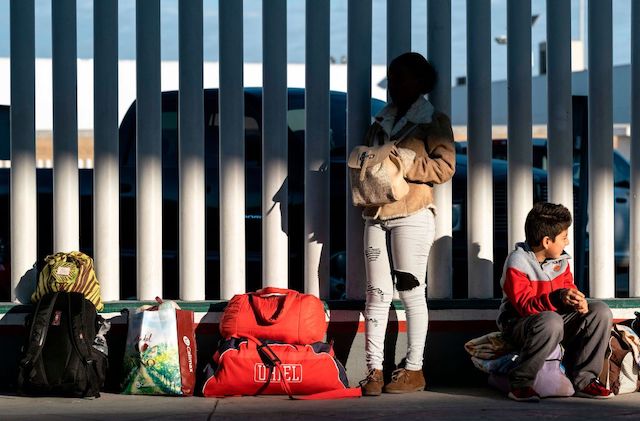Chaos Erupts After Court Halts, Then Reinstates Asylum Policy on Same Day

The Migrant Protection Protocols (MPP) program, also known as “Remain in Mexico,” requires tens of thousands of asylum seekers to wait in Mexico as their cases circulate through the United States court system. The harsh Trump administration policy created a massive wave of confusion and disorder on February 28 when a three-judge panel of the 9th U.S. Circuit Court of Appeals in California ruled to block and then reinstate the practice all within a matter of hours, the Associated Press reports.
It was mid-day on Friday when Judge William Fletcher, Judge Richard Paez and Judge Ferdinand Fernandez halted MPP, effectively destroying one of Trump’s key efforts in suppressing immigration at the southern border. By the end of the same day, however, those same judges restored the controversial policy after hearing arguments from the U.S. Department of Justice (DOJ).
Reports the AP:
…the court allowed the program to go back into effect after the Justice Department argued that its suspension will prompt migrants to overrun the border and endanger national security. The White House argued that the suspension of the policy would overwhelm the nation’s immigration system, damage relations with the government of Mexico and increase the risk of outbreak from the new coronavirus.
As previously reported in Colorlines in March 2019, MPP was mired in chaos and confusion almost immediately after it was first announced in January 2019. At the time, attorneys for Immigration and Customs Enforcement (ICE) couldn’t answer basic questions about the program:
Lindsay Toczylowski, an immigration attorney representing two asylum-seekers, spoke to CNN about the urgency of this situation. “Getting this right is a matter of life or death,” she said.
“It seems like a very chaotic situation,” added Robyn Barnard, an attorney representing two asylum seekers from Honduras. “Every time I had a question for chief counsel it was either met with ‘we don’t know’ or just silence.”
In January, Colorlines reported that 80 percent of the 60,000 people forced to remain in Mexico are regularly targeted for abduction and other acts of severe violence. According to the AP, “hundreds more have been living in squalid encampments just across the border.”
Colorlines reported:
Marcelo Fernandez, regional coordinator for MSF programs in Central America, says the concept of MPP is highly flawed. “Many of our patients are escaping high levels of violence in Guatemala, Honduras, and El Salvador,” he said in the report. “It is preposterous that the U.S. would send people back to the very same Central American countries people are fleeing in the first place.”
Friday’s decisions caused “whiplash” throughout the immigration system, according to the AP. As soon as the judges made their initial decision on Friday, representatives from advocacy group Human Rights First (HRF) walked a copy of the order to Customs and Border Protection (CBP) officials “at a bridge connecting Laredo, Texas, and Nuevo Laredo, Mexico," according to the AP. Lawyers hoped their clients could see U.S. immigration judges immediately, but the attorneys were told to wait.
Reports AP:
The decision interrupted some court cases. Immigration Judge Philip Law in San Diego delayed a final hearing on a Honduran man’s asylum case to April 17 after a government attorney couldn’t answer his questions about the effect of ruling. The attorney said she asked her supervisor how to address the ruling and that he didn’t know what to do either.
In El Paso, an administrator came to tell a judge of the ruling as he heard the case of a Central American mother and her partner. The couple cried when they learned they could get into the U.S. with restrictions. The couple and their two young children were put into government detention to wait for the next steps in their case.
“Do you guys understand that?” Judge Nathan Herbert asked through an interpreter. “There was a pretty significant change in the law in the middle of your testimony.”
Judy Rabinovitz, an attorney for the American Civil Liberties Union (ACLU), tells the AP that Friday’s eventual setback in the group’s case against the Trump administration is “a temporary step.”
“We will continue working to permanently end this unspeakably cruel policy,” she said.
